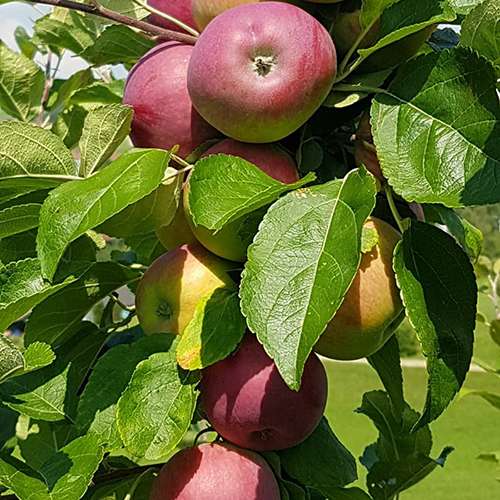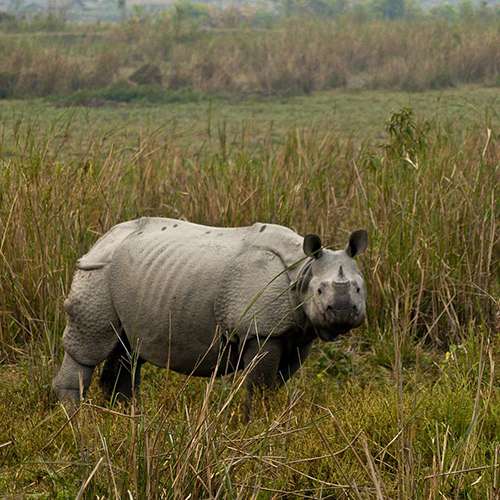Spread over an area of 893 sq km. Kawal Wildlife Sanctuary is located in the Adilabad district of Telangana. The sanctuary was once an important hunting ground for tigers for the Nizam of Hyderabad. Now It was notified as tiger reserve in April 2012.The sanctuary serves as a corridor connecting the southern forests of Telangana to reserve forests of Maharashtra, which are connected to the forests of the Vidharbha region.
The River Kadam flows through this area. It is a major source of water to the Kadam reservoir, which fills to prevent floods and then supplies water through the year to the Godavari River, the lifeline of the region. Kawal Wildlife Sanctuary is rich is flora and fauna. The sanctuary is one of the richest Teak forests in the State with dense pristine areas free of human disturbance.
The sanctuary house mammal species include tiger, leopard, gaur, cheetal, sambar, nilgai, barking deer and sloth bear. It also houses more than 250 bird species and a stronghold for the Grey Gallus sonneratii and Red Gallus gallus Jungle owl, a rare domain overlap for both species. Many migratory birds can also be seen here during the winter months. Several species of reptiles are also found in the sanctuary.
STATE : TELANGANA
LOCATION : The Kawal Wildlife Sanctuary is located about 250 km. from Hyderabad in the Adilabad district of Telangana.
LANGUAGE : Telugu, Hindi and English.
WHEN TO VISIT : The most preferable time to visit Kawal Wildlife Sanctuary is from the months of November to April. During that time the temperate climate would allow you to spend quite some time viewing the graces of Mother Nature.
CLOTHING : Cotton or linen full-sleeve outfits which match with surroundings like dark green, muddy-brown and rocky-grey are the ideal clothing color. Avoid shiny or reflective clothes during safari which may diverts or attracts wild animals & birds’ attention which may become cause them leaving the place.

Nature

Adventure

Wildlife

Flora

Fauna
Kawal Wildlife Sanctuary is well connected by motorable roads with different places. There are excellent bus services provided by private and State Road Transport Corporation, connecting Kawal Wildlife Sanctuary.
The most convenient Railhead Mancherial is 62 km. away from Kawal Wildlife Sanctuary. The Railhead is well connected by trains with different cities and places in India. From the railway station you can take a taxi or bus to reach Kawal Wildlife Sanctuary.
Nearest airport Hyderabad is 344 km. away from Kawal Wildlife Sanctuary. The airport is well connected by flights with different cities and places in India. From the airport, you can get a taxi or bus to reach Kawal Wildlife Sanctuary.
Best Season / Best Time to Visit Kawal Wildlife Sanctuary
January
February
March
April
May
June
July
August
September
October
November
December
CLIMATE
OPENING OF SANCTUARY : Kawal Wildlife Sanctuary is open throughout the year for visitors.
PERMIT : Permits obtain from the concerned park authority before you make entry to the Park. Tourists can obtain day visit permit at entry gate.
ENTRY FEE : NIL
ATTRACTIONS : Nature & Wildlife
SAFARI TIMING : Wildlife safari timing in Kanwal Wildlife Sanctuary is just like most parks in the country.
| Opens throughout the year | Safari Timing |
|---|---|
| Monday to Sunday | Sunrise to Sunset |
 : The incredible Kawal is the natural abode of the variant of wild species. Catching the amazing glimpses of the majestic creatures by trekking in the jungle and gives you a closer look to the wild life.
: The incredible Kawal is the natural abode of the variant of wild species. Catching the amazing glimpses of the majestic creatures by trekking in the jungle and gives you a closer look to the wild life.
JEEP SAFARI IN KAWAL: Kawal Wildlife Sanctuary is the perfect habitat of variety of animals and birds. Three hour open jeep safari will take you through an unspoiled wilderness area with some of the best sightings of wildlife in Corbett. The star attraction of the park is Tiger, leopard, gaur, cheetal, sambar, nilgai, barking deer, chowsingha, and sloth bear roaming inside their natural habitats.
Jeep Safaris at Kawal can be done in morning and afternoon Shift. The jeep can accommodate upto 6 people per safari. JEEP Safari at Kawal is a delight for adventure lovers and wildlife photographers. It explores especially those places, which are difficult to travel via any other mode of transportation.